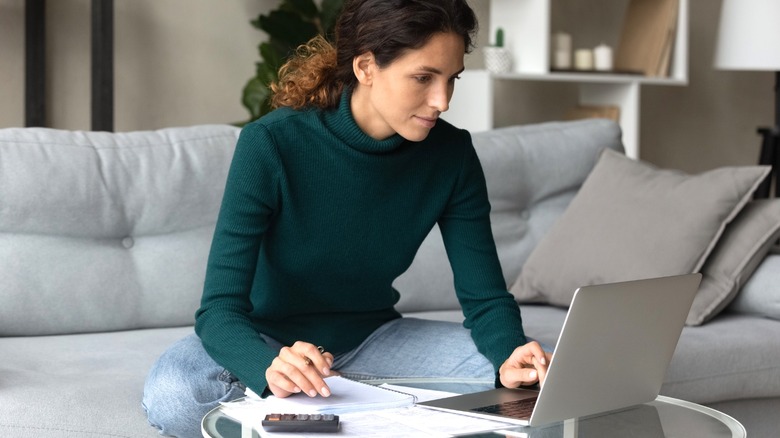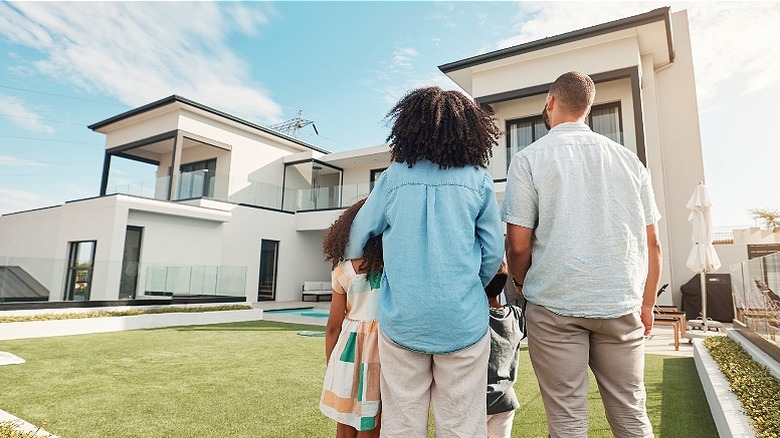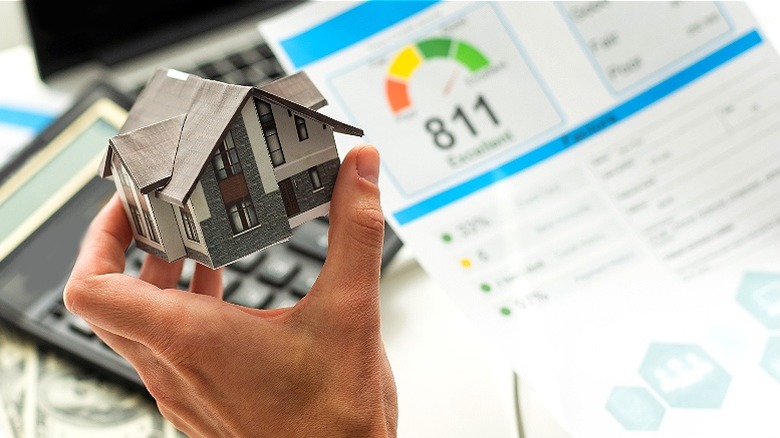Signs You're Ready To Buy A House (Even If It Doesn't Feel That Way)
In just a little over 20 years, the median value of a home in America has nearly quadrupled, going from $119,600 in 2000 to $426,900 in June 2024, per the National Association of Realtors. There are a number of factors contributing to the pricey housing market in the U.S., including inflation (check out these smart savings moves even with inflation rising), high mortgage rates, limited availability, and competitive investors outbidding families for those more affordable fixer-uppers.
For many, the American dream of owning a home seems nearly impossible to turn into a reality. After all, according to data from the Bureau of Labor Statistics (via Forbes Advisor), the average annual salary in the U.S. is $59,428, while the average hourly rate is $28.34. Therefore, if you're single and looking for a home, or if you and your significant other both earn below that average, the possibility of finding something in your price range — and not being outbid — can seem bleak.
Still, even if you feel that achieving homeownership in the near future is out of reach, you may actually be financially ready to make it happen. To know, there are some clear signs that can tell you you're indeed ready to buy a house.
You have stability in your life
It may be hard to believe, but you don't need to make six figures to become a homeowner. Rather, one clear sign you're financially ready to buy a home is having a stable and steady income, whether that's from a nine-to-five or self-employment. For the latter, it's true that the mortgage process is a bit more challenging for self-employed borrowers; however, it is possible to get a home loan without a W-2. As Paul Buege, operations officer at Guild Mortgage in Wisconsin, told Bankrate, the criteria for self-employed applicants is basically the same. "The basic criteria to get approved are the same," he said. "You need to have a good credit history, sufficient liquid available assets, and a history of stable employment."
Beyond proving to the lender your creditworthiness, though, you'll also need that income source going forward, as the costs of homeownership only begin with the initial down payment. Along with the monthly mortgage payments, you'll also need to account for home maintenance (neglecting red flags can cost you), homeowners insurance, property taxes, and more, and you won't want to be in the middle of a financial upset when they arrive.
On that note, another sign you're ready to buy a home is having a general stability in life. If you're the roaming type who doesn't like to stay in one place for too long, such a major investment isn't the best idea. On the other hand, if you're a fan of a particular area and see yourself residing there for at least a decade (average length of homeownership in the U.S. is 11.9 years, per Consumer Affairs), buying a home makes perfect sense.
You have good credit and manageable debt
Having a stable source of income isn't the only financial requirement and clear sign you're ready to become a homeowner. As mentioned, to secure a mortgage, good credit is a must. Credit expert John Ulzheimer shared with CNBC Select that a credit score of 760 is ideal (speaking of, here's how to buy a home when your partner has bad credit).
In addition to having good credit, another clear sign that you're financially ready to buy a house is having either no debt, or a manageable debt. For example, if you have thousands of dollars in student loan payments and just obtained a new car, buying a home may not be the best option. On the other hand, if most — or all — of your other big investments are paid off, you may be ready to get a home, too. Dave Ramsey, of "The Ramsey Show," urged people not to make themselves "house poor" by taking on more than they can financially handle.
"There's always been people with house fever," he said. "They lose their minds and they go with a big 'ol debt, they got a big 'ol car payment, they got student loans coming out of their ears, and they go buy a house and they're broke, and they can't figure out why the purchase of a home was not a blessing." According to Ramsey, people need to first "get yourself where you ain't broke." At that point, you can consider it a sign you're ready for homeownership.


